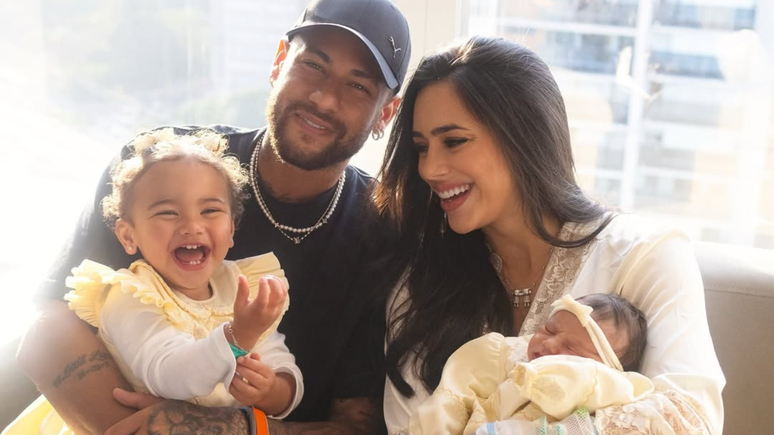When taking stock of your relationship, there are a few things you should look for in a partner.
Certain traits and qualities, such as respect and empathy, can help your relationship thrive in the long term and benefit your mental well-being. When you meet someone new, you may have a list of qualities you would like this person to possess, such as “makes me laugh,” “great in bed,” or “gets along well with my friends.”
Of course, this is worth taking into account. But when you start thinking of this person as a life partner, there are other “deeper” qualities you should keep in mind. When taking stock of your relationship, there are a few things you should look for in a partner. This can help make your time together enjoyable and reasonably turbulence-free.
Below are some characteristics to look for in a life partner, according to psychologists:
1. Have a solid foundation
In human terms, this has nothing to do with bricks and mortar. Instead, it’s about having strong physical, emotional, social, financial and intentional roots. Don’t worry, this doesn’t mean the person has to be the most popular, rich, fit and successful. But you must be able to remain independent in every aspect of your life or actively work to do so. While these aspects benefit your partner, they are also to your advantage. Having a relationship with someone who takes responsibility for your well-being means you won’t have to fill gaps in your self-esteem, confidence and security.
2. Communicate effectively
As they say, communication is key. And while your partner needs to be able to express himself, it’s equally important that he can listen to your needs and concerns. Sharing feelings and needs clearly and directly helps improve feelings of intimacy and closeness. Partners who communicate well make their lives and that of psychologists easier. There is no guesswork and confusion when trying to understand them and their needs. Of course, good communication takes work. But several steps, such as regular check-ins, can help keep things under control.
3. Share values
No couple will always agree 100% on everything, and it would probably be really boring if they did. But having similar beliefs and attitudes towards the main pillars of “life” is vital. For example, from how to raise any children you may decide to have, to whether or not charity and other forms of giving should be part of building a precious and well-lived life together. One partner can influence the other in some aspects. But it really helps when you start with your values identified and, under the best circumstances, significantly overlapping.
4. Show respect
As Aretha Franklin sang, we all need respect – and she wasn’t wrong. But it’s not about expecting your partner to respect you more than himself. Instead, he must consider his opinions, values and feelings and act accordingly. It is also important that your partner shows respect for your personal boundaries. Each partner must commit to not exceeding these limits, regardless of disappointment, pain or moments of anger. Receiving respect is also crucial in helping you maintain your self-respect and know your worth and importance.
5. Show empathy
Simply put, demonstrating empathy is the ability to recognize and understand another person’s emotions and needs. While it may not be a quality that comes to mind, empathy is critical to the success of a relationship. A 2022 study found that empathy is linked to relationship satisfaction. Empathic partners are more likely to experience loneliness and insecurity if they are dissatisfied with their relationship, compared to those who lack empathy. Furthermore, having an empathetic partner helps us feel more heard and understood in the relationship. This not only helps create a sense of accomplishment, but also helps build trust and respect.
6. Recognize and appreciate your imperfections
We’re not talking about someone who thinks they’re perfect and never makes an effort to improve when necessary. Instead, these individuals can view their failures with grace and without self-deprecation, shame, guilt, or avoidance. If your partner can do this, you will both reap the benefits. He will have enough confidence and self-love to be able to recognize when he has made a mistake. Plus, he’ll be much more likely to provide you with the same safe space to be imperfect and less likely to deflect blame and responsibility.
7. Be open to acceptance
With some partners, it’s either their way or the highway. For example, have you ever dealt with a person who knows your needs and wants and refuses to give you what you ask for? But being with someone who is willing to accept your needs and consider your opinions is vital. Not only does it increase your feelings of self-worth and self-respect, but it also leads to greater satisfaction and happiness as you feel essential to that person.
8. Give affection the way you need it
We all like to show and receive affection in different ways: some are very touchy, while others show love through practical actions. But if these don’t align within a relationship, it can lead to frustration and even feelings of rejection. Find a partner who, simply put, communicates your appreciation and desire in a way that is consistent with what makes you feel seen and loved. This is one of the fundamental ideas behind the book Five Love Languages, by Gary Chapman, published in the 1980s.
9. Listen and be open during discussions
If your partner doesn’t actively listen to you during disagreements and simply waits for the next opportunity to express his or her opinion, it leaves no room for problem solving. Additionally, feeling like your point of view isn’t valued can create feelings of frustration, resentment, disrespect, and a feeling of not being seen. Staying open and curious allows you to gain more information and see new perspectives. This can be especially helpful in remediating difficult situations.
What does a healthy relationship look like?
While it’s important to look for and recognize your partner’s favorable traits, it’s also critical to recognize that the responsibility doesn’t just fall on your partner. In a successful relationship it’s like the saying: it takes two to tango. Singles may enter the dating world with a short-sighted view of what they need and want. This is especially true if they are coming off a bad breakup or have wounds from past relationships.
It is also important to thoroughly analyze whether you are capable of providing the same. So, does this mean that you should have exactly the same characteristics and attributes as your partner? Surely not. People come with all kinds of strengths and weaknesses. The best relationships aren’t necessarily made up of equals, but of people with strengths that help support their partners’ weaknesses.
“I ask partners to identify how much overlap they need in the relationship. For example, I had a couple where Partner A valued sociability and Partner B valued independence,” recalls Ashley Head, a clinical psychologist who practices in Illinois, United States. States., to the website Psychological center. “In this case, they agreed that it was a healthy difference, as it challenged Partner A to become more talkative and attend networking events, while Partner B appreciated more alone time to develop personal hobbies.”
Source: Psych Central
Source: Terra
Ben Stock is a lifestyle journalist and author at Gossipify. He writes about topics such as health, wellness, travel, food and home decor. He provides practical advice and inspiration to improve well-being, keeps readers up to date with latest lifestyle news and trends, known for his engaging writing style, in-depth analysis and unique perspectives.








